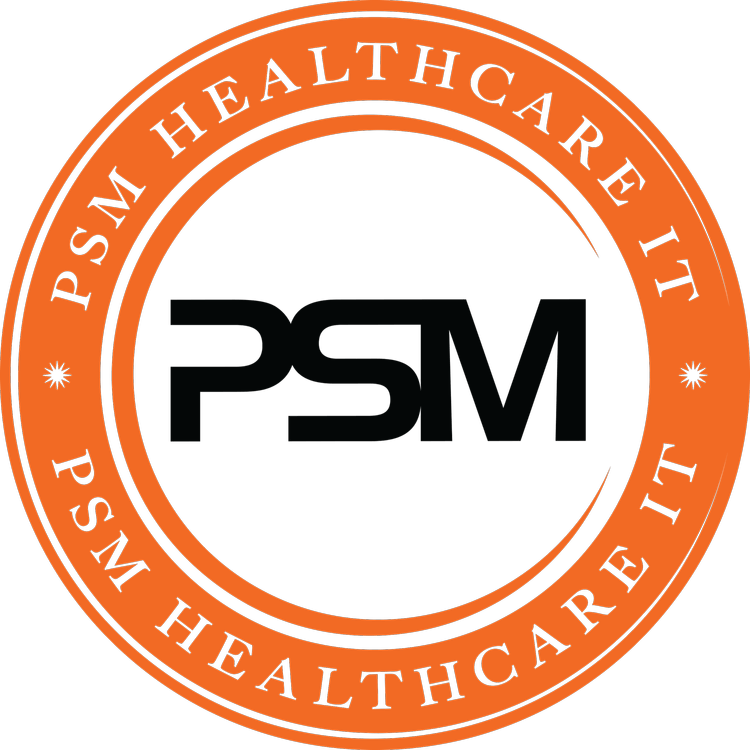Healthcare IT Security Training & Testing
-
-
What are the key benefits of implementing security awareness training for healthcare staff?
-
How can role-based access control enhance IT security in healthcare settings?
-
Why is continuous training essential for maintaining robust healthcare IT security measures?
-
How does integrating cybersecurity culture benefit healthcare institutions beyond IT security?
-
What are the core features to look for in effective healthcare IT security training solutions?
-
Are you confident your healthcare staff can safeguard sensitive data? Healthcare IT security training and testing for staff is crucial. Equip your team with the knowledge and skills needed to combat cyber threats effectively. By investing in comprehensive training, you ensure your organization stays compliant and protected. Stay ahead of evolving cybersecurity risks by empowering your staff with the right tools and expertise. Boost your healthcare IT security posture through targeted training programs and regular testing protocols. Safeguard patient information while enhancing overall data protection measures.
Key Takeaways of Healthcare IT Security Training & Testing
-
Implementing regular security awareness training programs for healthcare staff is crucial to enhance IT security measures and protect sensitive patient data.

Healthcare IT Security Training & Testing -
Training solutions should include key features such as interactive modules, simulated phishing attacks, and real-world scenarios to effectively educate staff on cybersecurity best practices.
-
Integrating a cybersecurity culture within healthcare organizations fosters a proactive approach to data protection and mitigates potential security risks.
-
Role-based access control ensures that staff only have access to the information necessary for their specific job roles, reducing the risk of unauthorized data breaches.
-
Balancing compassion with caution is essential in healthcare IT security training, emphasizing the importance of empathy towards patients while maintaining strict data protection protocols.
-
Continuous training should be prioritized to keep staff updated on the latest security threats and best practices, ensuring a proactive approach to cybersecurity within healthcare settings.
Understanding Security Awareness
Definition and Importance
Healthcare IT security training & testing for staff involves educating employees on identifying and mitigating cybersecurity risks in the healthcare sector. This training equips staff with knowledge to recognize threats like phishing emails and malware attacks.
Security awareness training is crucial in healthcare to prevent data breaches and protect sensitive patient information. It ensures that employees understand the importance of following security protocols and maintaining confidentiality.
By undergoing regular security training, staff develop a security-centric mindset, making them vigilant against potential cyber threats. This proactive approach helps in creating a culture of cybersecurity awareness within the organization.
Compliance and Protection
Compliance with regulations such as HIPAA is vital in healthcare IT security training & testing for staff. Adhering to these regulations ensures that patient data remains secure and confidential.
Security training plays a key role in protecting patient data from unauthorized access or breaches. It educates employees on best practices for handling sensitive information securely.
Moreover, security training helps in safeguarding against legal implications that may arise from data breaches or non-compliance with regulations. By ensuring staff are well-versed in security protocols, organizations can mitigate risks effectively.
Why Train Healthcare Staff
Against Cyberattacks
Security training equips healthcare staff with skills to identify and thwart cyberattacks effectively. In the digital age, healthcare organizations face increasing threats from cybercriminals seeking to exploit vulnerabilities. Cyberattacks can result in data breaches, financial losses, and compromised patient care.
Security training plays a crucial role in mitigating risks posed by cyber threats. By educating staff on best practices for data protection and threat detection, organizations can enhance their cybersecurity posture. Through simulated phishing exercises and incident response training, employees become vigilant against potential cyber threats.
Secure Patient Data
Training healthcare staff in IT security is vital for safeguarding patient data from unauthorized access. Data breaches not only jeopardize patient privacy but also erode trust in healthcare providers. Security training instills a culture of compliance with data protection regulations and protocols.
Patient data breaches can have severe consequences on patient privacy and confidentiality. Unauthorized access to sensitive information can lead to identity theft, medical fraud, and reputational damage for healthcare institutions. Security training ensures that staff adhere to strict protocols to maintain the integrity of patient data.
Prevent Supply Chain Risks
Effective security training is essential for preventing supply chain risks within the healthcare sector. The interconnected nature of supply chains makes them vulnerable to cyber threats and disruptions. Training staff on supply chain security protocols strengthens the resilience of healthcare operations.
Vulnerabilities in the healthcare supply chain pose significant risks, including counterfeit products, delays in care delivery, and compromised patient safety. Security training enhances staff awareness of potential threats and equips them with the knowledge to detect and mitigate risks promptly. By ensuring the integrity of the supply chain, organizations can maintain continuity in service delivery.
Implementing Training Programs
Steps for Effective Programs
Implementing training sessions for healthcare staff involves several key steps. Firstly, develop tailored training content that addresses specific healthcare industry requirements. Ensure the content covers topics like data protection, HIPAA compliance, and cybersecurity best practices.
Next, schedule regular training sessions to educate all staff members on the latest security threats and protocols. Utilize interactive methods such as simulations and quizzes to enhance engagement and knowledge retention among employees.
To create a successful security training program, establish clear learning objectives and assess staff members’ understanding through regular assessments. Provide resources like online modules, workshops, and access to experts for additional support.
Continuous improvement is crucial in security training initiatives. Regularly update training materials based on emerging threats and feedback from employees. Encourage open communication channels for reporting security incidents or seeking guidance.
Tailoring to Healthcare Needs
Tailoring security training to meet healthcare industry requirements is essential due to the sensitive nature of patient data. Healthcare organizations face unique challenges in cybersecurity, including managing vast amounts of confidential information while complying with strict regulations like HIPAA.
Customized security training programs offer numerous benefits for healthcare staff. They help employees understand the importance of safeguarding patient data and recognizing potential cyber threats. Tailored programs also address specific vulnerabilities within healthcare IT systems, reducing the risk of data breaches.
Key Features of Training Solutions
Engaging Content
Engaging content plays a crucial role in security training programs by capturing employees’ attention and enhancing their understanding. Interactive elements, such as quizzes and scenarios, make the training more dynamic and memorable. Employees are more likely to retain information when the content is engaging.
Providing real-life examples and simulated scenarios can simulate practical situations, helping employees apply their knowledge effectively. By incorporating gamification elements, such as rewards and leaderboards, training programs become more interactive and enjoyable for staff.
Easy Access
Ensuring easy access to security training materials is essential for maximizing employee participation. Online platforms offer flexibility for employees to complete training at their convenience, reducing scheduling conflicts. Mobile-friendly resources allow staff to access training materials anytime, anywhere.
Online platforms provide a centralized hub for all training materials, making it easier for employees to navigate through different modules. The ability to track progress and resume training from where they left off enhances the overall learning experience for employees.
Phishing Simulations
Phishing simulations are valuable tools in security training as they replicate real-world phishing attacks. These simulations expose employees to common phishing tactics and teach them how to identify suspicious emails or messages. By experiencing simulated phishing attempts, staff learn to be vigilant and avoid falling victim to cyber threats.
Phishing simulations create a safe environment for employees to practice identifying phishing red flags without risking actual security breaches. Through these exercises, organizations can gauge the effectiveness of their phishing awareness campaigns and tailor future training initiatives accordingly.
Reporting Tools
Reporting tools are essential components of security training programs as they provide insights into employee performance and engagement levels. These tools track individual progress, completion rates, and quiz scores, enabling managers to identify areas that require additional support or reinforcement. Analytics generated from reporting tools offer valuable data on the overall effectiveness of the security training program.
Enhancing IT Security Measures
Regular Cybersecurity Training
Regular cybersecurity training is crucial for staff to stay updated on security best practices. Ongoing sessions ensure employees are well-equipped to identify and respond to potential threats effectively. Continuous education plays a vital role in strengthening cybersecurity defenses by instilling a culture of vigilance and awareness.
Employees benefit from regular training as it keeps them informed about the latest cyber threats and security protocols. By staying up-to-date, staff can proactively mitigate risks and protect sensitive data from potential breaches. Ongoing training also helps in fostering a proactive approach towards cybersecurity within the organization.
Consistent cybersecurity training empowers employees to recognize and address security vulnerabilities promptly. Through continuous education, staff members develop skills to implement preventive measures, reducing the likelihood of successful cyber attacks. This proactive stance enhances overall security posture and minimizes the impact of potential security incidents.
Phishing Awareness
Raising awareness about phishing attacks is essential to combat this prevalent form of cyber threat. Educating staff on common phishing tactics equips them with the knowledge to identify suspicious emails and links effectively. By understanding the red flags of phishing attempts, employees can thwart potential data breaches and financial losses.
Phishing attackers often use deceptive tactics such as email spoofing and fake websites to trick individuals into divulging sensitive information. By educating employees on these strategies, organizations can empower their staff to exercise caution when interacting with online content. Recognizing phishing attempts promptly is key to preventing unauthorized access to confidential data.
Educating employees on how to identify and report suspicious emails is crucial in mitigating the risks associated with phishing attacks. By promoting a culture of vigilance, organizations can create a strong line of defense against social engineering tactics employed by cybercriminals. Encouraging prompt reporting of suspicious emails enables swift action to prevent potential security breaches.
Monitoring Software Use
Monitoring software usage is an integral component of comprehensive security training programs. By tracking employee activities, organizations can detect unauthorized software installations that may pose security risks. Monitoring tools provide real-time insights into software usage patterns, enabling proactive identification and mitigation of potential vulnerabilities.
Effective software monitoring plays a critical role in safeguarding organizational networks from external threats. By monitoring software installations and updates, IT teams can ensure compliance with security policies and regulations. Proactive monitoring helps in preventing unauthorized access to sensitive data and mitigates the risk of malware infections or system compromises.
tware monitoring serves as a proactive measure in maintaining robust IT security infrastructure within organizations. By continuously assessing software usage patterns, companies can identify anomalies or irregularities that may indicate potential security breaches. This preemptive approach strengthens overall cybersecurity defenses and enhances resilience against evolving cyber threats.
Integrating Cybersecurity Culture
In Healthcare Settings
Implementing security training in healthcare settings poses specific challenges due to the sensitive nature of patient data and regulatory requirements. The dynamic nature of healthcare IT systems requires regular updates to training protocols.
Security training plays a crucial role in addressing the unique risks faced by healthcare organizations, such as ransomware attacks and data breaches. Staff must be equipped with the knowledge to identify and respond to cyber threats promptly.
Context-specific security training for healthcare staff is essential to ensure they understand the industry-specific regulations and best practices. Training should cover topics like data privacy, secure communication, and incident response protocols.
Educating Leadership
Leadership involvement is vital in promoting security awareness training among staff members. By setting an example, leaders can demonstrate the organization’s commitment to cybersecurity and encourage employee participation.
Educating leaders on cybersecurity not only enhances their understanding but also empowers them to champion a culture of security within the organization. Leaders who prioritize security initiatives create a work environment where staff prioritize data protection.
The benefits of leadership involvement in driving security training initiatives are manifold. When leaders actively support training programs, it boosts staff engagement, increases compliance with security protocols, and strengthens overall cybersecurity posture.
Role-Based Access Control
Importance for Security
Security awareness training is crucial for maintaining robust healthcare IT security. It ensures that staff members understand their responsibilities and the risks involved in handling sensitive data. By providing regular training, organizations can strengthen their security posture and reduce the likelihood of breaches.
Employee training plays a vital role in fostering a proactive security culture within healthcare institutions. When staff are well-informed about cybersecurity best practices, they become the first line of defense against potential threats. This proactive approach not only safeguards patient information but also protects the organization’s reputation.
Regular security training sessions empower employees to identify and respond to suspicious activities promptly. By educating staff on recognizing phishing emails, malware, or social engineering tactics, organizations can significantly reduce the chances of falling victim to cyberattacks. Training instills a sense of responsibility among employees towards safeguarding sensitive data.
-
Pros:
-
Enhances overall security posture
-
Empowers employees to identify and respond to threats
-
Reduces the risk of data breaches
-
-
Cons:
-
Requires consistent updates and refreshers
-
Time-consuming for both employees and trainers
-
Balancing Compassion with Caution
Cybersecurity and Patient Care
Cybersecurity in healthcare plays a crucial role in safeguarding patient information and ensuring patient safety. By implementing robust security measures, healthcare organizations can protect sensitive data from cyber threats, ultimately enhancing patient care outcomes. Security breaches can lead to compromised patient records, affecting the quality of care provided.
Security training for healthcare staff is essential in maintaining the integrity of patient information. Through regular training sessions, employees learn to identify potential security risks and adhere to best practices in handling patient data securely. This training not only protects patient privacy but also instills a culture of vigilance among staff members.
The connection between cybersecurity and patient care outcomes is evident in the impact of security incidents on healthcare operations. A breach can disrupt services, leading to delays in patient treatment and compromising the overall quality of care. Therefore, investing in comprehensive security training programs is crucial for mitigating these risks and ensuring uninterrupted care delivery.
-
Pros:
-
Enhanced protection of patient data
-
Improved staff awareness of cybersecurity risks
-
-
Cons:
-
Costs associated with implementing training programs
-
Time-consuming nature of ongoing security education
-
Patient safety and privacy are paramount concerns in healthcare settings. Cybersecurity measures such as encryption, access controls, and regular security testing are vital components in safeguarding patient confidentiality. By prioritizing cybersecurity initiatives, healthcare organizations demonstrate their commitment to upholding ethical standards and protecting the well-being of their patients.
Prioritizing Continuous Training
Setting Standards
Setting standards for security training programs is crucial to ensure that all staff receive consistent and effective training. These standards outline the necessary skills and knowledge required to combat evolving cybersecurity threats. By establishing clear guidelines, organizations can maintain uniformity in training content and delivery methods.
Moreover, standards play a vital role in evaluating the success of security training initiatives. They provide a measurable framework for assessing staff competency levels and identifying areas that require improvement. Regularly updating these standards based on industry best practices ensures that training remains relevant and impactful.
Upholding Training Quality
Upholding high-quality training standards is paramount in enhancing an organization’s cybersecurity preparedness. By investing in comprehensive and engaging training programs, staff are better equipped to identify and mitigate potential risks effectively. Consistent reinforcement of these standards fosters a culture of vigilance and accountability among employees.
The quality of training directly influences an organization’s ability to defend against cyber threats. A well-trained workforce is more adept at recognizing phishing attempts, malware infections, and other common security breaches. Continuous improvement efforts, such as incorporating real-life scenarios and interactive simulations, contribute to enhancing the overall effectiveness of training programs.
Final Remarks
In wrapping up, you’ve delved into the critical realm of healthcare IT security training and testing for staff. Understanding the significance of security awareness and why training your healthcare team is paramount has been highlighted. Implementing comprehensive training programs, focusing on key features of training solutions, and enhancing IT security measures are vital steps to fortify your organization against cyber threats. Integrating a cybersecurity culture, enforcing role-based access control, and balancing compassion with caution are essential elements to consider. Prioritizing continuous training ensures that your staff remains vigilant and proactive in safeguarding sensitive data.
Take charge today by reinforcing your healthcare IT security through robust training initiatives. Empower your staff to become the first line of defense against cyber-attacks, ultimately safeguarding patient information and upholding the integrity of your organization’s operations.
Frequently Asked Questions
What are the key benefits of implementing security awareness training for healthcare staff in hospitals to reduce human risk?
Security awareness training equips staff with knowledge to identify and mitigate potential threats, safeguarding sensitive patient data. It fosters a culture of cybersecurity responsibility, reducing risks of breaches and ensuring compliance with industry regulations.
How can role-based access control enhance IT security in healthcare settings?
Role-based access control restricts system access based on job responsibilities, minimizing the risk of unauthorized data breaches. By assigning specific permissions to staff members, organizations ensure that only necessary personnel can view or modify sensitive information.
Why is continuous training essential for maintaining robust healthcare IT security measures?
Continuous training keeps staff updated on evolving cybersecurity threats and best practices. Regular refreshers help reinforce security protocols, reduce human errors, and instill a proactive security mindset across all levels of the organization.
How does integrating cybersecurity culture benefit healthcare institutions beyond IT security?
Integrating a cybersecurity culture promotes a holistic approach to data protection, fostering trust among patients and stakeholders. It demonstrates a commitment to privacy and confidentiality, enhancing the organization’s reputation and attracting clients who prioritize secure healthcare environments.
What are the core features to look for in effective healthcare IT security training solutions during the pandemic?
Effective training solutions should offer interactive modules tailored to healthcare scenarios, real-life case studies, and assessments. They should cover topics like phishing awareness, password management, data encryption, and incident response protocols to prepare staff comprehensively for various cybersecurity challenges.





